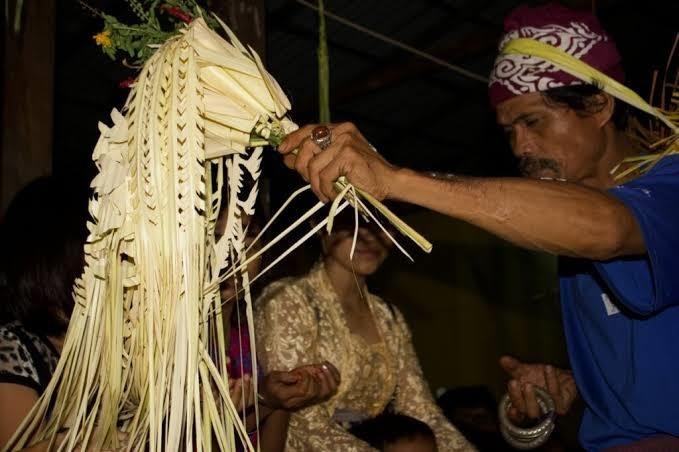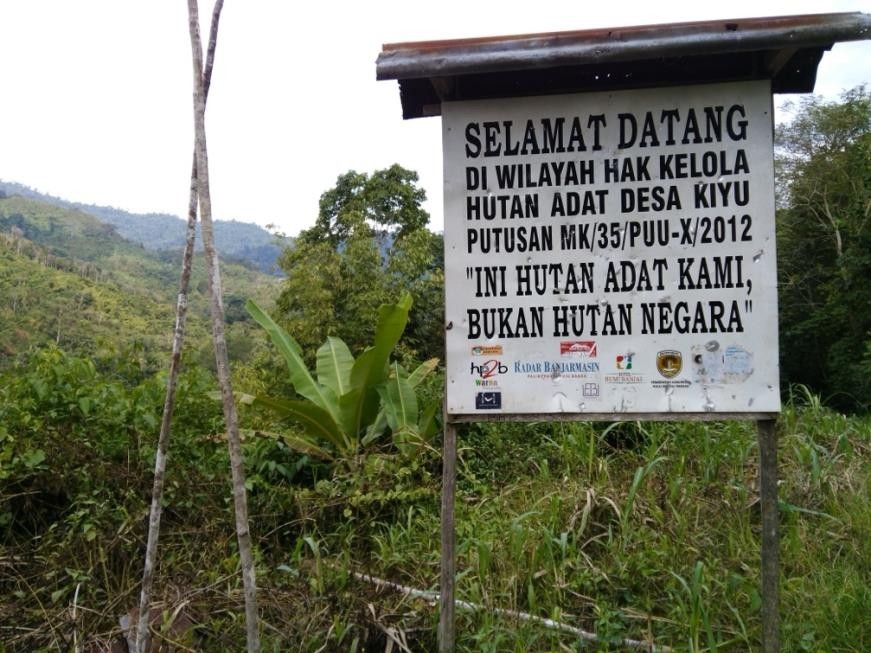Banjarbaru, October 21, 2024. Prabowo Subianto and Gibran Rakabuming Raka were officially inaugurated as President and Vice President of Indonesia for the 2024-2029 term during a Plenary Session of the MPR RI at the Nusantara Building, Parliament Complex, Jakarta, on Sunday (October 20th, 2024). In his speech, Prabowo emphasized his commitment to prioritize the interests of all Indonesian people without exception. He promised to place the interests of the people above those of groups or individuals. Prabowo even asserted that the interests of the people will always take priority over the interests of specific groups or personal interests. With a commitment to fighting for welfare, this new government is expected to demonstrate concrete steps in addressing various challenges, including environmental issues and the rights of indigenous communities.
Today, the previously announced cabinet lineup has officially been inaugurated. Hanif Faisal Nurrofiq was appointed as the Minister of Environment (LH) as well as the Head of the Environmental Control Agency. He will lead the agency, which is a split from the Ministry of Environment and Forestry, for the next five years. However, Hanif’s appointment has sparked controversy, particularly regarding his track record in the environmental sector, which is seen as lacking commitment.
Lack of Contribution and No Support for Indigenous Peoples
Hanif, who previously served as Head of the Forestry Department of South Kalimantan in 2016, is known for controversially denying the existence of Indigenous Peoples in the Meratus Mountains. As Director General of Spatial Planning and Environmental Management (PKTL) in 2020, he pushed for the Meratus Mountains to be designated as a National Park, a policy seen as detrimental to indigenous communities. The establishment of a National Park raises fears of displacing indigenous peoples from their lands, as the National Park concept does not accommodate traditional land use that is vital for their livelihoods.
Redy Rosyadi, Executive Director of the Cakrawala Hijau Indonesia Foundation (YCHI), argues that Hanif Faisal Nurrofiq has not made significant contributions and does not support indigenous communities in South Kalimantan. YCHI emphasizes that the recognition and protection of indigenous peoples have a long journey, which is further complicated by Hanif’s proposal for a National Park in the Meratus Mountains.
For over a decade, the Alliance of Indigenous Peoples of the Archipelago (AMAN), Wahana Lingkungan Hidup Indonesia (Walhi), and civil society coalitions have pushed for the recognition of indigenous peoples in South Kalimantan. Some districts, such as Hulu Sungai Selatan, Tabalong, and Balangan, have made progressive steps in the verification and recognition of indigenous communities. However, the threat of losing their indigenous rights becomes more evident if their ancestral territories are designated as a National Park.
Indigenous communities who have lived there for centuries face potential displacement, jeopardizing their recognition process. Even if their institutions are acknowledged, they may end up living without their ancestral lands. Their livelihoods, which rely on their traditional territories, will be lost, creating uncertainty and significant losses for these communities.
Kisworo Dwi Cahyono, Executive Director of Walhi South Kalimantan, urges the Merah Putih Cabinet to save the environment in the Meratus Mountains and mitigate ecological disaster threats. The Meratus Mountains must be cleared of mining and palm oil plantation permits. He calls for immediate recognition of community-managed areas, particularly for the Dayak Meratus Indigenous Peoples, and the establishment of a fair and environmentally friendly grassroots economy.
Walhi South Kalimantan believes Hanif is unfit to serve as Minister of Environment given his background and track record as Head of the South Kalimantan Forestry Department. Hanif has not positively contributed to environmental conservation in South Kalimantan. Furthermore, the task of managing permits was his responsibility during his tenure as Director General of PKTL, yet he has been seen as inactive in protecting natural resources in South Kalimantan.
Mining Issues During Hanif’s Tenure
Behind the narrative of environmental conservation, Hanif is suspected of compromising by facilitating the exploitation of forested areas for mining companies operating without permits. Forest Watch Indonesia campaigner Anggi Prayoga asserts that during his time as Director General of PKTL, Hanif did not take serious action to regulate permits and manage environmental issues. Mining permits (IUP) in forest areas are damaging the environment and forest resources. Environmental concerns are feared to become mere commodities for Hanif to sustain illegal mining practices within forest areas without appropriate legal measures, Anggi concluded.
Amalya Reza, Bioenergy Campaigner at Trend Asia, strongly opposes Hanif’s inauguration as minister due to his conflicts of interest with large business owners. South Kalimantan and Merauke have already suffered from these brutal projects. Alongside Hanif, several ministers and deputy ministers are also linked to the mining tycoon, Haji Isam. The conflict between National Parks and indigenous communities is not only happening in Meratus but also in Mentawai and other regions, reflecting how forest management practices is done arbitrarily. Adding to this, the Vice Minister of Forestry is Dr. Sulaiman Umar, the brother-in-law of Haji Isam, raising questions about his allegiance to forests and the environment.

Despite being from South Kalimantan who grew up in Tanah Bumbu, Hanif’s contributions to protecting the forests and indigenous communities in his province are minimal. His previous roles, both as Head of Forestry and Director General of PKTL, seem directed more toward securing mining business interests rather than conserving forests. His connections with mining companies have also drawn scrutiny, especially regarding the ongoing forest destruction in South Kalimantan.
Ruby from AMAN South Kalimantan asserts that indigenous communities and their lands in South Kalimantan must be recognized. Ruby insists that they demand the commitment from newly inaugurated President Prabowo and Vice President Gibran to work for all Indonesians, including indigenous peoples. He hopes this new government can bring positive changes, including expedited passage of the Indigenous Peoples Bill.

As president, Prabowo has a significant responsibility to protect indigenous peoples across Indonesia, including the urgent enactment of the Indigenous Peoples Bill that has long been advocated. The decision to appoint Hanif, who has a poor track record in supporting indigenous communities, will certainly attract considerable scrutiny and may tarnish the image of the Prabowo-Gibran administration, which claims to serve the people.
Coalition of Civil Society #SAVEMERATUS
- Forest Watch Indonesia
- Trend Asia
- AMAN South Kalimantan
- Walhi South Kalimantan
- LPMA Borneo
- YCHI
- Sawit Watch
- Greenpeace Indonesia
- Indonesian Anthropological Association
- Sumpit Community
- SLPP South Kalimantan
Contact Person
Coalition Coordinator: Redy +62 813-5048-7891
AMAN South Kalimantan: Ruby +62 812-5081-1319
FWI Media: +62 857-2034-6154
****



